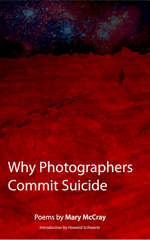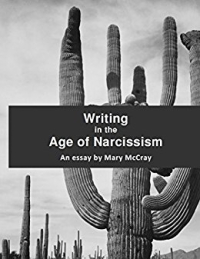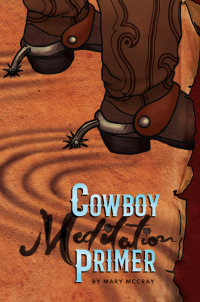Back to School
 Sometimes even the lightest fare can have little treats of poems in them. Recently I rewatched Back to School, the 80s comedy with Rodney Dangerfield and Sally Kellerman and not only does it have poetry, but Kellerman plays a literature professor who saves Dangerfield from being kicked out of college during his first semester.
Sometimes even the lightest fare can have little treats of poems in them. Recently I rewatched Back to School, the 80s comedy with Rodney Dangerfield and Sally Kellerman and not only does it have poetry, but Kellerman plays a literature professor who saves Dangerfield from being kicked out of college during his first semester.
Kellerman’s character, Dr. Diane Turner, played with the kind of sexy relish Kellerman excels at, enters the story of the first day of lit class not with a poem but a speech from James Joyce’s Ulysses (a book I have tried to read twice and have fully given up on even though I like Difficult Books):
“I was a Flower of the mountain yes when I put the rose in my hair like the Andalusian girls used or shall I wear a red yes and how he kissed me under the Moorish wall and I thought well as well him as another and then I asked him with my eyes to ask again yes and then he asked me would I yes to say yes my mountain flower and first I put my arms around him yes and drew him down to me so he could feel my breasts all perfume yes and his heart was going like mad and yes I said yes I will Yes.”
Often Kellerman over-acts in things, but you gotta give her credit for making anything from James Joyce to salad dressing (see link above) seem like the sexist thing in the universe. And what a smile.
Dangerfield’s character is a self-made gazillionaire named Thornton Mellon who is going back to school in a sweet-hearted attempt to both rewrite his past and to help his son fit in and finish school. They are both attending Dr. Turners lit class and Mellon (the Senior) makes the first faux-pas of talking during the lecture, getting called out by the teacher and then trying to wing-it with an answer but fatally asserting the writer is a woman named Joyce. (Haven’t we all been there?)
Tuner plays the best kind of professor, one who is not willing to put up with Thornton’s intellectual evasions and trickery but also patient and kind with him.
Thornton Mellon decides he wants to be tutored by this sexy teacher and he tries to talk her into mentoring him. When she begs off for having to teach night classes, Mellon says, “Call me when you got no class.”
Classic Dangerfield.
But Turner finally agrees and their first tutoring scene starts in the middle of the session (with dinner of course) with Turner explaining a Yeats poem to Mellon.
Turner:
“Everywhere the ceremony
of innocence is drowned;
The best
lack all conviction…
while the worst are full
of passionate intensity.”There’s a lot of other stuff here. Yeats goes on and on…and here’s the finish.
“What rough beast,
its hour come round at last…
“slouches towards Bethlehem
to be born?”What does that make you think of?
Mellon:
Rough beast. My ex-wife.
Turner:
Well, that’s one interpretation. Not the right one, but it’s a start.
So okay, a flimsy link between the poem and the one-liner. Not great, “but it’s a start.”
Here is the full poem, “The Second Coming,” by William Butler Yeats
Turning and turning in the widening gyre
The falcon cannot hear the falconer;
Things fall apart; the centre cannot hold;
Mere anarchy is loosed upon the world,
The blood-dimmed tide is loosed, and everywhere
The ceremony of innocence is drowned;
The best lack all conviction, while the worst
Are full of passionate intensity.Surely some revelation is at hand;
Surely the Second Coming is at hand.
The Second Coming! Hardly are those words out
When a vast image out of Spiritus Mundi
Troubles my sight: somewhere in sands of the desert
A shape with lion body and the head of a man,
A gaze blank and pitiless as the sun,
Is moving its slow thighs, while all about it
Reel shadows of the indignant desert birds.
The darkness drops again; but now I know
That twenty centuries of stony sleep
Were vexed to nightmare by a rocking cradle,
And what rough beast, its hour come round at last,
Slouches towards Bethlehem to be born?
And at the end of the movie, Mellon is forced to take a four-hour-long final exam orally because he plagiarized all his coursework. Like a true oligarch, he tried to delegate all his learning, including hiring Kurt Vonnegut himself to write Mellon’s paper on the books of Kurt Vonnegut, which results in the hilarious exchange with his Turner later. When she sees right through Dangerfield’s lies about writing the paper, she declares ironically, “Whoever wrote this paper obviously know nothing about Kurt Vonnegut.”
Funny!
The teacher and student fall in love, have some ups and downs and by the end, when the oral exam is killing Thorton, Turner helps him through it by asking him to recite the Dylan Thomas poem “Do Not Go Gentle Into the Good Night.”
Do not go gentle into that good night,
Old age should burn and rave at close of day;
Rage, rage against the dying of the light.Though wise men at their end know dark is right,
Because their words had forked no lightning they
Do not go gentle into that good night.Good men, the last wave by, crying how bright
Their frail deeds might have danced in a green bay,
Rage, rage against the dying of the light.Wild men who caught and sang the sun in flight,
And learn, too late, they grieved it on its way,
Do not go gentle into that good night.Grave men, near death, who see with blinding sight
Blind eyes could blaze like meteors and be gay,
Rage, rage against the dying of the light.And you, my father, there on the sad height,
Curse, bless, me now with your fierce tears, I pray.
Do not go gentle into that good night.
Rage, rage against the dying of the light.
View the clip here. Thornton Mellon learns to love learning and alls well that ends well.
BBC’s New Tricks
 Which brings us to Britbox crime shows.
Which brings us to Britbox crime shows.
When my husband turned 50, just like when my parents turned 50, they all became obsessed with British crime shows and mysteries. We’ve seen copious amounts of both campy and serious BBC crime shows now (from the cheesy Hetty Wainthropp Investigates and Pie in the Sky to the gravitas-laced Vera and many shows in between.
I chalk up the obsession to getting old and wanting things to f**king resolve in this world, to finally getting fed up by all the open-ended post-modernism and “realistic” tragedy. After witnessing a lifetime of injustice, they just want a TV show to end with some justice already. Plus my mother says the women look normal on the BBC. (And she’s got a point there.)
The show New Tricks falls somewhere between cheesy and serious, depending upon the season. Brian was my favorite character but by season 10 the writing floundered and things started making no sense. Sandra just became a one-note bitter butterball. So most of the cast departed and Monsieur Big Bang was ready to drop. We kept saying there was no show without Brian.
But then I just wanted to hang on long enough to see the new, post-Brian cast recombination. To our surprise, as soon as Sasha came on the show to replace Sandra, the writing miraculously got better and the new Sasha character was able to overcome all the other flat, uninteresting old men who were still left. Which is how we saw the “Deep Swimming” episode (Season 11, Episode 3).
In this one, Sasha is investigating an activist group and she quotes lines from this Wordsworth poem to put the smug, uber-nerd Dan Griffin in his place. Which was very pleasant because he’s a very insufferable character.
“Composed Upon Westminster Bridge, September 3, 1802” by William Wordsworth
Earth has not any thing to show more fair:Dull would he be of soul who could pass byA sight so touching in its majesty:This City now doth, like a garment, wearThe beauty of the morning; silent, bare,Ships, towers, domes, theatres, and temples lieOpen unto the fields, and to the sky;All bright and glittering in the smokeless air.Never did sun more beautifully steepIn his first splendour, valley, rock, or hill;Ne’er saw I, never felt, a calm so deep!The river glideth at his own sweet will:Dear God! the very houses seem asleep;And all that mighty heart is lying still!





Leave a Reply